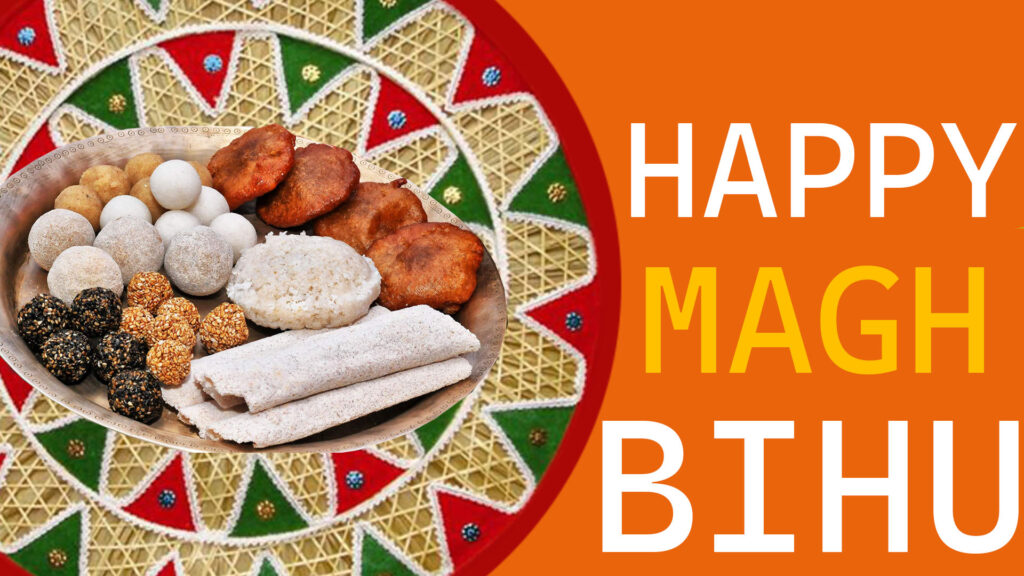Bhogali Bihu: A Celebration of Harvest and Prosperity

Bhogali Bihu, also known as Magh Bihu, is one of the most vibrant and cherished festivals in Assam, India. Celebrated in the month of Magh (January), it marks the end of the harvesting season and symbolizes abundance, joy, and togetherness. The term “Bhogali” is derived from the word “Bhog,” which means feast, aptly reflecting the festival’s essence of culinary indulgence and communal harmony.
Bhogali Bihu is primarily an harvest festival that honors the hard work of farmers and the bounty of nature. It is a time of gratitude to the gods for a successful harvest and a moment to enjoy the fruits of labor. The festival embodies the spirit of sharing, as communities come together to celebrate the season of plenty.
The Celebrations
Uruka: The festivities begin on the evening of Uruka, the night before Magh Bihu. On this day, people construct temporary huts called “Bhelaghar” in their fields using harvested hay. These huts are adorned with colorful decorations and are meant to be a symbol of prosperity and abundance. Later in the evening, people gather in groups to build mejis (a temporary structure made of bamboo, hay, and wood) in open fields, and lit in front of the Bhelaghar. The mejis serve as the focal point for the celebrations. People gather around the Meji, singing traditional folk songs and offering maah (pulses), tamul (betel nut), and paan (betel leaves) into the flames believing it will purify the environment and bring good fortune. A sumptuous feast is prepared and shared among family and friends.
Bhogali Bihu: The main day of the festival is Bhogali Bihu. It is also a time for fun and frolic. People visit each other’s homes, exchanging greetings and blessings. They also participate in various cultural activities, such as Bihu dance, folk music, and traditional games. Traditional games like tekeli bhanga (pot-breaking), buffalo fights, and kabaddi are organized in villages, adding to the festive cheer.
The Culinary Delights
Food plays a central role in Bhogali Bihu. The preparation of traditional dishes begins days in advance. Some popular delicacies include:
- Til Pitha: Rice cakes stuffed with sesame and jaggery.
- Narikol Laru: Sweet balls made of coconut and jaggery.
- Xandoh: Roasted rice flour served with milk and jaggery.
These dishes not only celebrate the harvest but also showcase the rich culinary traditions of Assam.
The festival strengthens community ties, as people come together to prepare, celebrate, and share. It is a time to forget differences and unite in the joy of the season. The warmth of the meji fire and the camaraderie among villagers create memories that last a lifetime.
Conclusion
Bhogali Bihu is more than just a festival; it is a celebration of life, nature, and culture. It reminds us of the importance of gratitude, togetherness, and sustainable living. As Assam lights up with the flames of mejis and the laughter of its people, Bhogali Bihu serves as a beautiful testament to the timeless bond between humans and nature.


